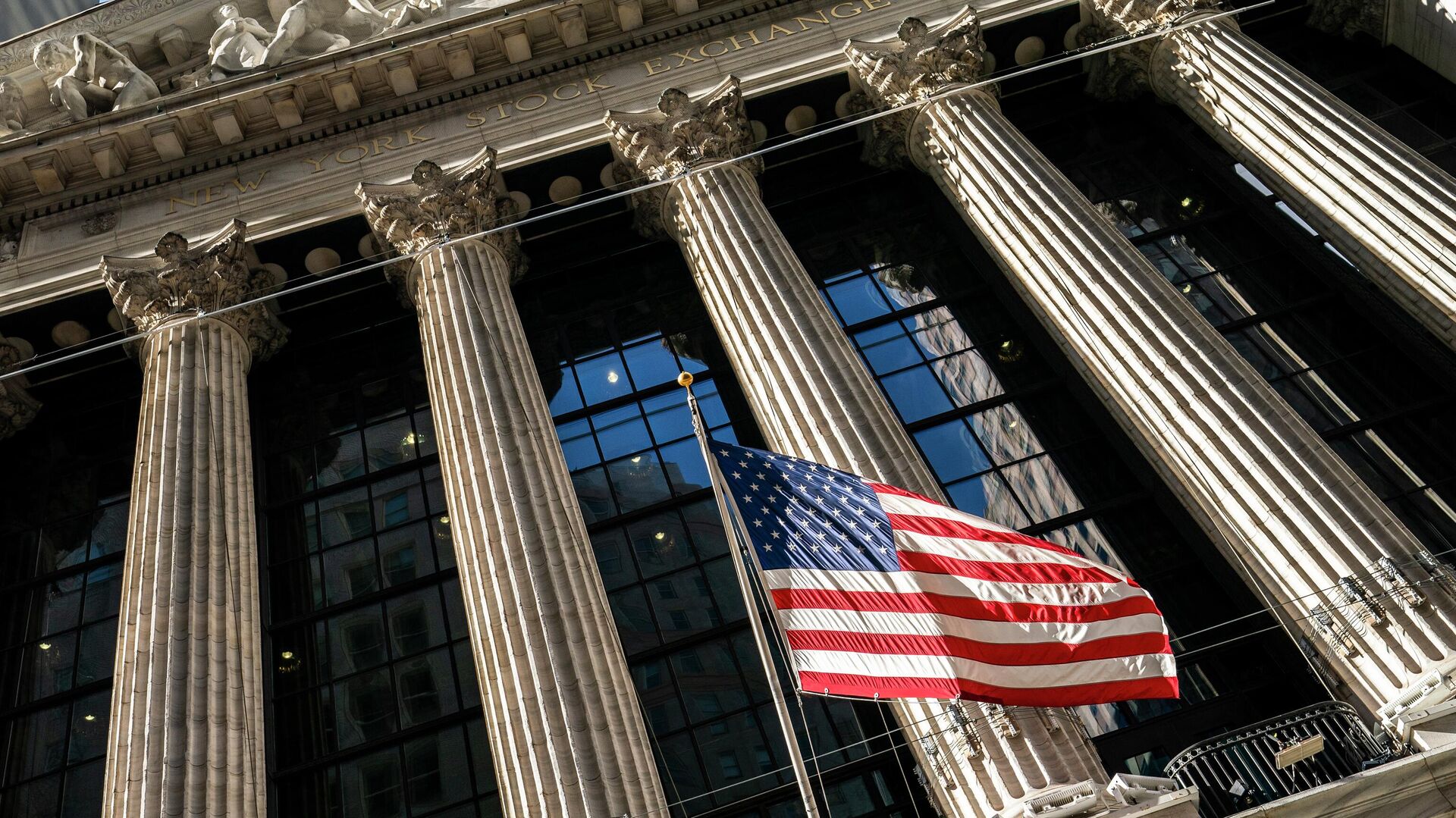https://sputnikglobe.com/20220602/us-economic-hurricane-likely-from-feds-rate-hikes-balance-sheet-cuts---jpmorgan-ceo-1095933447.html
US Economic ‘Hurricane’ Likely From Fed’s Rate Hikes, Balance Sheet Cuts - JPMorgan CEO
US Economic ‘Hurricane’ Likely From Fed’s Rate Hikes, Balance Sheet Cuts - JPMorgan CEO
Sputnik International
NEW YORK (Sputnik) - An economic equivalent of a hurricane is about to strike the United States as the Federal Reserve embarks on sharp interest rate hikes as... 02.06.2022, Sputnik International
2022-06-02T03:26+0000
2022-06-02T03:26+0000
2022-06-02T03:25+0000
us economy
wall street
us federal reserve
jpmorgan chase
interest rate
https://cdn1.img.sputnikglobe.com/img/07e6/05/04/1095272424_0:321:3071:2048_1920x0_80_0_0_567714ac57b74db48660415d8f7574c6.jpg
“You know, I said there's storm clouds but I'm going to change it... it's a hurricane," Dimon said in remarks at a financial conference reported by Business Insider on Wednesday. “You better brace yourself. JPMorgan is bracing ourselves and we're going to be very conservative with our balance sheet.”June marks the start of what would be an accelerated pace of cutbacks on the Federal Reserve’s $9 trillion balance sheet, as the US central bank begins rolling off tens of billions of dollars of Treasury and mortgage-backed securities each month. Concurrently, there are very likely to be half-point interest rate hikes back-to-back in June and July, keeping up with the quarter-point and half-point increases from March and May, respectively.Dimon said the Federal Reserve’s actions could have varying degrees of impact on the economy.After tumbling 3.5% in 2020 due to the complications caused by the coronavirus pandemic measures, the US economy expanded by 5.7% in 2021, growing at the fastest pace in 40 years. But inflation grew even faster. The Consumer Price Index (CPI), another major price gauge, expanded by 7.5% last year, also at the fastest pace in four decades, due to lingering supply constraints caused by the pandemic measures.This year, the CPI has expanded more aggressively, growing at an annualized rate 8.5% in March before moderating to 8.3% in April.Economists have said they worry the Federal Reserve might tip the economy into a recession with the most aggressive interest rate hikes in a generation. The Federal Reserve has vowed to continue to raise rates this year and even slow economic growth, if necessary, to bring inflation back to 2% or less.Aligning with those fears, the US economy has been on a weaker trajectory since the start of this year, experiencing a negative growth of 1.4% in the first quarter. If the economy does not return to positive territory by the second quarter, it will technically be in recession given that it takes just two straight negative quarters to account for a recession.
wall street
Sputnik International
feedback@sputniknews.com
+74956456601
MIA „Rosiya Segodnya“
2022
Sputnik International
feedback@sputniknews.com
+74956456601
MIA „Rosiya Segodnya“
News
en_EN
Sputnik International
feedback@sputniknews.com
+74956456601
MIA „Rosiya Segodnya“
Sputnik International
feedback@sputniknews.com
+74956456601
MIA „Rosiya Segodnya“
us economy, wall street, us federal reserve, jpmorgan chase, interest rate
us economy, wall street, us federal reserve, jpmorgan chase, interest rate
US Economic ‘Hurricane’ Likely From Fed’s Rate Hikes, Balance Sheet Cuts - JPMorgan CEO
NEW YORK (Sputnik) - An economic equivalent of a hurricane is about to strike the United States as the Federal Reserve embarks on sharp interest rate hikes as well as accelerate cutbacks in bonds that it used to hold to support the economy, JPMorgan CEO Jamie Dimon said.
“You know, I said there's storm clouds but I'm going to change it... it's a hurricane," Dimon said in remarks at a financial conference reported by Business Insider on Wednesday. “You better brace yourself. JPMorgan is bracing ourselves and we're going to be very conservative with our balance sheet.”
June marks the start of what would be an accelerated pace of cutbacks on the Federal Reserve’s $9 trillion balance sheet, as the US central bank begins rolling off tens of billions of dollars of Treasury and mortgage-backed securities each month. Concurrently, there are very likely to be half-point interest rate hikes back-to-back in June and July, keeping up with the quarter-point and half-point increases from March and May, respectively.
Dimon said the Federal Reserve’s actions could have varying degrees of impact on the economy.
"Right now, it's kind of sunny. Things are doing fine. Everyone thinks the Fed can handle this. That hurricane is right out there down the road coming our way. We just don't know if it's a minor one or superstorm Sandy... or Andrew or something like that," Dimon said, referring to actual catastrophic hurricanes that have hit the United States.
After tumbling 3.5% in 2020 due to the complications caused by the coronavirus pandemic measures, the US economy expanded by 5.7% in 2021, growing at the fastest pace in 40 years. But inflation grew even faster. The Consumer Price Index (CPI), another major price gauge, expanded by 7.5% last year, also at the fastest pace in four decades, due to lingering supply constraints caused by the pandemic measures.
This year, the CPI has expanded more aggressively, growing at an annualized rate 8.5% in March before moderating to 8.3% in April.
Economists have said they worry the Federal Reserve might tip the economy into a recession with the most aggressive interest rate hikes in a generation. The Federal Reserve has vowed to continue to raise rates this year and even slow economic growth, if necessary, to bring inflation back to 2% or less.
Aligning with those fears, the US economy has been on a weaker trajectory since the start of this year, experiencing a negative growth of 1.4% in the first quarter. If the economy does not return to positive territory by the second quarter, it will technically be in recession given that it takes just two straight negative quarters to account for a recession.



